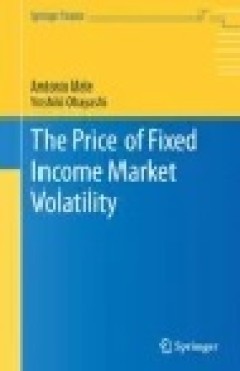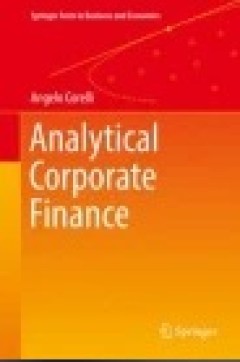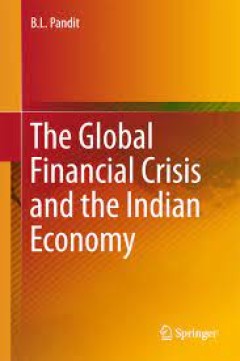Filter by

The Influence of Blockholders on Agency Costs and Firm Value
Markus P. Urban investigates the influence of large shareholders (the so-called blockholders) on agency costs and firm value, thereby accounting for blockholder characteristics and blockholder interrelationships. The work provides a profound theoretical and empirical analysis on the nature and effect of shareholder engagement with due regard to the specifics of the German institutional environm…
- Edition
- 1
- ISBN/ISSN
- 978-3-658-11402-2
- Collation
- XXXVI, 462,
- Series Title
- Auditing and Accounting Studies
- Call Number
- -

The Inexorable Evolution of Financialisation: Financial Crises in Emerging Ma…
Since the 2007 financial crisis, discussion on issues related to the size, spread and frequency of financial crises has captivated a wide variety of audiences. Why has the world economy experienced such a marked increase in financial transactions and private and public indebtedness since the 1980s? How have middle-income developing countries suddenly become a part of this dynamic? And, most imp…
- Edition
- 1
- ISBN/ISSN
- 978-1137553638
- Collation
- 2635 KB
- Series Title
- The Inexorable Evolution of Financialisation: Financial Crises in Emerging Markets
- Call Number
- -

The Icelandic Financial Crisis
This book presents a detailed account of Iceland’s recovery from the tumultuous banking collapse that overturned its financial industry in 2008. Early chapters recount how Iceland’s central bank was unable to follow the quantitative easing policies of the time to print money and save the banks, while serving the world´s smallest currency area. The book goes on to explore how the government…
- Edition
- 1
- ISBN/ISSN
- 978-1-137-39455-2
- Collation
- XVI, 349, 23 illustrations in colour
- Series Title
- Palgrave Macmillan Studies in Banking and Financial Institutions
- Call Number
- -

The Price of Fixed Income Market Volatility
This book fills this gap and provides a unified evaluation framework of fixed income volatility while dealing with disparate markets such as interest-rate swaps, government bonds, time-deposits and credit. It develops model-free, forward looking indexes of fixed-income volatility that match different quoting conventions across various markets, and uncovers subtle yet important pitfalls arising …
- Edition
- -
- ISBN/ISSN
- 978-3-319-26523-0
- Collation
- XI, 250
- Series Title
- Springer Finance
- Call Number
- -

The Handbook of Post Crisis Financial Modelling
The 2008 financial crisis was a watershed moment which clearly influenced the public's perception of the role of 'finance' in society. Since 2008, a plethora of books and newspaper articles have been produced accusing the academic community of being unable to produce valid models which can accommodate those extreme events. This unique Handbook brings together leading practitioners and academ…
- Edition
- 1
- ISBN/ISSN
- 978-1-137-49449-8
- Collation
- XIX, 316
- Series Title
- The Handbook of Post Crisis Financial Modelling
- Call Number
- -

Business Challenges in the Changing Economic Landscape - Vol. 1: Proceedings …
This book is the first of the two volumes featuring selected articles from the 14th Eurasia Business and Economics conference held in Barcelona, Spain, in October 2014. Peer-reviewed articles in this first volume present latest research breakthroughs in the areas of Accounting, Corporate Governance, Finance and Banking, Institutional and International Economics, and Regional Studies. The contri…
- Edition
- -
- ISBN/ISSN
- 978-3-319-22596-8
- Collation
- -
- Series Title
- -
- Call Number
- 332

Analyzing Financial Data and Implementing Financial Models Using R
This book is a comprehensive introduction to financial modeling that teaches advanced undergraduate and graduate students in finance and economics how to use R to analyze financial data and implement financial models. This text will show students how to obtain publicly available data, manipulate such data, implement the models, and generate typical output expected for a particular analysis. …
- Edition
- Ed. 1
- ISBN/ISSN
- 978-3-319-14075-9
- Collation
- XVI, 351
- Series Title
- Springer Texts in Business and Economics
- Call Number
- 332 ANG a

Analytical Corporate Finance
This book draws readers’ attention to the financial aspects of daily life at a corporation by combining a robust mathematical setting and the explanation and derivation of the most popular models of the firm. Intended for third-year undergraduate students of business finance, quantitative finance, and financial mathematics, as well as first-year postgraduate students, it is based on the twin …
- Edition
- Ed. 1
- ISBN/ISSN
- 978-3-319-39549-4
- Collation
- XVIII, 471
- Series Title
- Springer Texts in Business and Economics
- Call Number
- 657.48 COR a

The Global Financial Crisis and the Indian Economy
After tracing the causes of the global financial crisis, the book focuses on two fundamental systemic issues connected with its manifestation: financial-sector regulation and the problem of the dollar-centric international monetary system, both of which have been widely cited among the important factors leading to the 2008 financial crisis. The important analytical question of monetary policy t…
- Edition
- 1
- ISBN/ISSN
- 978-81-322-2395-5
- Collation
- XI, 142, 31 b/w illustrations
- Series Title
- The Global Financial Crisis and the Indian Economy
- Call Number
- -

Building Trust in Information : Perspectives on the Frontiers of Provenance
This book reports on the results of an interdisciplinary and multidisciplinary workshop on provenance that brought together researchers and practitioners from different areas such as archival science, law, information science, computing, forensics and visual analytics that work at the frontiers of new knowledge on provenance. Each of these fields understands the meaning and purpose of represent…
- Edition
- -
- ISBN/ISSN
- 978-3-319-40226-0
- Collation
- -
- Series Title
- -
- Call Number
- 332
 Computer Science, Information & General Works
Computer Science, Information & General Works  Philosophy & Psychology
Philosophy & Psychology  Religion
Religion  Social Sciences
Social Sciences  Language
Language  Pure Science
Pure Science  Applied Sciences
Applied Sciences  Art & Recreation
Art & Recreation  Literature
Literature  History & Geography
History & Geography